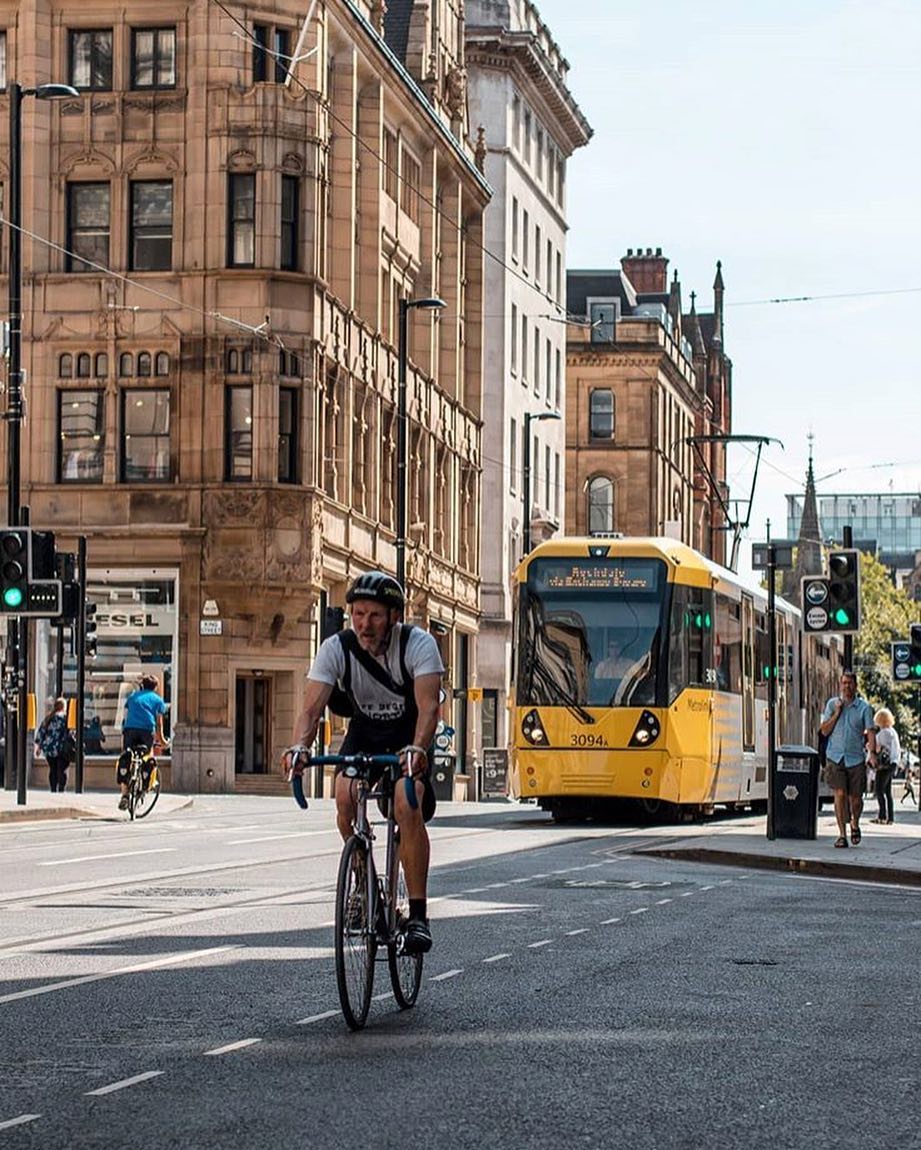
Greater Manchester has been instructed by the Government to put forward proposals to tackle air pollution on roads.
Last year, the Government’s national air pollution report identified just 11 locations in Greater Manchester with illegally high roadside nitrogen dioxide (NO2) levels. However, a detailed local model, published last week has shown the problem is not only more widespread but also worse, with high levels of NO2 present in 152 stretches of road in Greater Manchester.

Transport For Greater Manchester (TFGM) said poor air quality is the largest environmental public health issue facing the UK. The transport co-ordinator said road transport causes 80% of NO2 emissions at the roadside, mainly from diesel vehicles. And pollutants are linked to a wide range of serious health problems and contribute to the equivalent of 1,200 deaths a year in Greater Manchester alone.
Greater Manchester is one of a dozen of areas in the UK that have been instructed by the Government to put forward proposals to tackle NO2 air pollution on local roads as soon as possible. As a result, all 10 Greater Manchester councils are developing a single Clean Air Plan to reduce NO2 in close collaboration with Public Health England and the Government’s Joint Air Quality Unit (JAQU).

Councillor Alex Ganotis, Greater Manchester Combined Authority’s (GMCA) Green City Region Lead, said the council is calling on the Government to ‘give Greater Manchester the tools to tackle the issue’.
He said:
“Nitrogen dioxide is an invisible killer, and drivers and their passengers often don’t realise that the air inside their car can be dirtier than outside. We can all make small changes to help clean up our air. For example, driving less and walking or cycling more can help reduce your exposure to air pollution and also cut emissions. We’re looking at ways to help more people do this.
“But we mustn’t lose sight of the fact this is a looming public health crisis which needs urgent national action. We’re calling on Government to give Greater Manchester the tools we need to tackle the problem together – this means a local vehicle scrappage scheme and funding for cleaner engines for buses and taxis.
“In developing our Clean Air Plan, Greater Manchester is following a strictly defined process set out by Government to run feasibility studies on potential NO2 air pollution compliance measures. I want to be clear that a congestion charge is not being considered as part of this process. But we do have to consider how we ensure that dirty vehicles are not polluting our air. This is a major public health problem for Greater Manchester.
“Government must also act to make sure Highways England, which runs the motorway network around Greater Manchester, tackles air pollution on and near our motorways.”

Eleanor Roaf, Greater Manchester’s lead Director of Public Health for air quality, added:
“Air pollution is the number one environmental public health issue in Greater Manchester. And it’s children, older people and those in poor health who are hit hardest by polluted air. But it’s not just them who would benefit from this problem being tackled effectively.
“Polluted air increases the chance of hospital admissions and trips to A&E. It’s harming our health and is linked to increased risk of heart disease and lung cancer. That’s why urgent steps need to be taken to ensure this issue is tackled as quickly as possible.”
Possible measures shortlisted by Greater Manchester in March 2018 as part of this process include: increasing public transport capacity, upgrading or retrofitting the public transport fleet to run on cleaner engines, increasing the use of electric vehicles through expanding the electric charging point network or financial incentives, better traffic management, encouraging use of alternative fuels, expanding and improving cycling and walking infrastructure, and potentially introducing Clean Air Zones – where the most polluting vehicles may attract a penalty payment if they are driven into certain designated areas.

Councillor Angeliki Stogia, Executive Member for Environment, Planning and Transport for Manchester City Council, said everyone will ‘need to do their bit’ to tackle the problem.
She said:
“Doing nothing to improve this situation is not an option. Not only are local authorities responsible for ensuring air quality is legally compliant but crucially we have a duty to help protect the health of Manchester people and save lives.
“We need to have a conversation with Manchester people about the problem and potential solutions, at both a city and Greater Manchester level, before taking any decisions. But we do need to act sooner rather than later to radically improve air quality.
“Every one of us will need to do our bit, from individuals thinking about how they travel around the city to local authorities looking at how we promote positive transport choices that will improve the air we all breathe.
“In order to reduce the level of air pollution as quickly as possible, Transport for Greater Manchester, on behalf of all ten councils, have been looking at all the potential options available. This includes Clean Air Zones which involve financial penalties for the most polluting vehicles.”

Greater Manchester’s preferred choice of measures will be required by the Government to tackle the problem at least as quickly as a charge-based Clean Air Zone could, for the same or lower cost. No decisions have yet been made about the potential options for tackling air pollution. A further report on options for reducing NO2 levels across Greater Manchester will be considered by Greater Manchester councils and the GMCA in the next couple of months.
Visit Clean Air Greater Manchester to see which areas of Manchester are affected and for the latest details on the development of the Greater Manchester Clean Air Plan.

